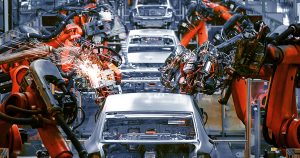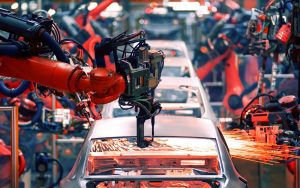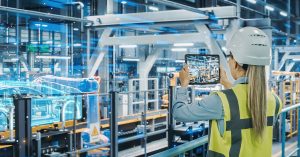
The manufacturing industry is at the cusp of a transformative era, propelled by technological advancements, sustainability imperatives, and an evolving global landscape. This article explores the imminent future of manufacturing, delving into four key trends that are reshaping the industry and steering it towards unprecedented innovation and efficiency.
**1. **Smart Manufacturing and Industry 4.0:**
*Overview:* The era of Smart Manufacturing, often referred to as Industry 4.0, heralds a paradigm shift in manufacturing processes. This trend integrates cutting-edge technologies such as the Internet of Things (IoT), artificial intelligence, and data analytics to create intelligent, interconnected, and automated systems. Smart Manufacturing optimizes efficiency, minimizes downtime, and enhances overall productivity, laying the foundation for the factories of the future.
**2. **Sustainable and Eco-Friendly Practices:**
*Overview:* Sustainability is no longer an option but a necessity in manufacturing. The industry is embracing eco-friendly practices to reduce its environmental footprint. From energy-efficient production processes to the use of recycled materials, manufacturers are aligning their operations with sustainable goals. This trend not only addresses environmental concerns but also meets the growing consumer demand for ethically produced goods.
**3. **Advanced Robotics and Automation:**
*Overview:* The integration of advanced robotics and automation is reshaping the manufacturing landscape. Robots are no longer confined to repetitive tasks; they are evolving into collaborative tools that work alongside human counterparts. This trend enhances precision, accelerates production cycles, and ensures a safer working environment. The rise of cobots (collaborative robots) exemplifies the synergy between human expertise and robotic efficiency.
**4. **Supply Chain Resilience and Digitalization:**
*Overview:* The disruptions witnessed in global supply chains have prompted a reevaluation of strategies. Digitalization plays a pivotal role in enhancing supply chain resilience. The adoption of digital twins, blockchain technology, and real-time monitoring optimizes supply chain visibility, mitigates risks, and enables quick response to market fluctuations. Manufacturers are harnessing digital tools to create agile and adaptive supply chains.
**5. **Customization through Additive Manufacturing:**
*Overview:* Additive Manufacturing, commonly known as 3D printing, is revolutionizing product development and customization. This trend enables manufacturers to produce complex, customized components with precision and speed. From healthcare to aerospace, industries are leveraging additive manufacturing to create bespoke solutions, reducing waste and unlocking new possibilities in design and production.
**6. **Human-Machine Collaboration and Upskilling:**
*Overview:* As automation takes center stage, there is a parallel emphasis on upskilling the workforce for roles that complement technology. Human-machine collaboration is fostering a new era of manufacturing where humans leverage their creativity, critical thinking, and problem-solving skills. Training programs and reskilling initiatives are preparing the workforce to navigate this synergistic relationship between humans and machines.
**7. **Cybersecurity in Manufacturing:**
*Overview:* The increasing connectivity of manufacturing systems also brings forth the importance of robust cybersecurity measures. With data being a valuable asset, manufacturers are investing in cybersecurity protocols to safeguard intellectual property, sensitive information, and maintain the integrity of their operations. This trend is integral to ensuring the trustworthiness of digitalized manufacturing environments.
**Conclusion:**
The future of manufacturing is not a distant vision; it is unfolding before us. As the industry embraces smart technologies, sustainability imperatives, and digital transformations, manufacturers are poised to create a future characterized by efficiency, innovation, and resilience. By staying abreast of these key trends, the manufacturing sector is not only shaping its destiny but contributing to a global landscape that values sustainability, collaboration, and technological advancement.





